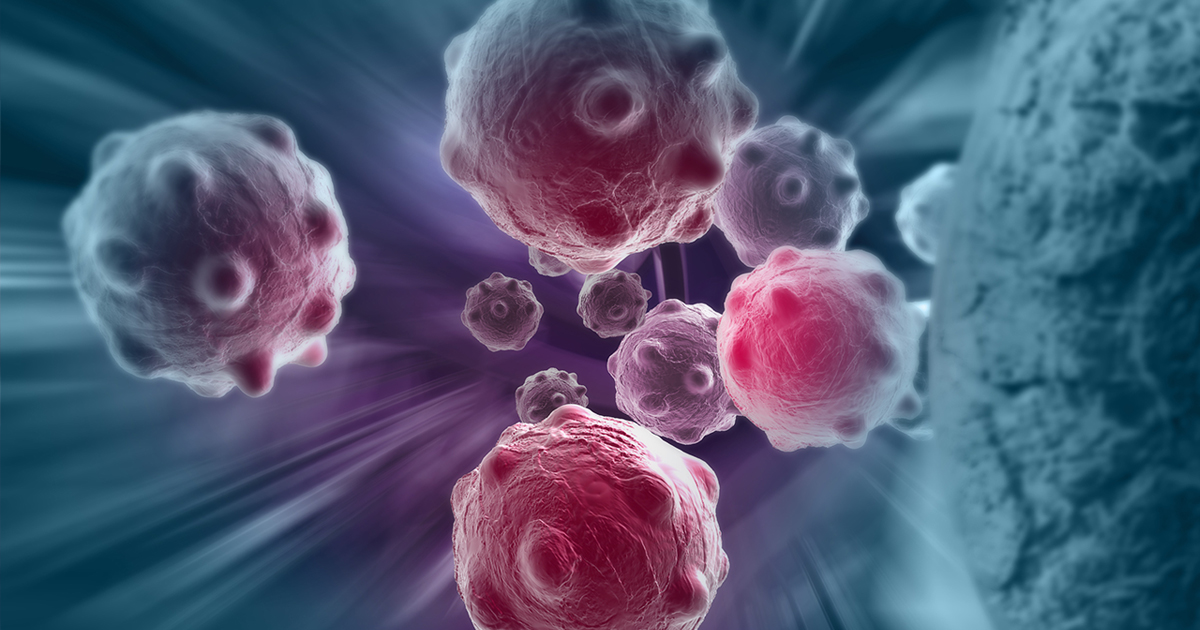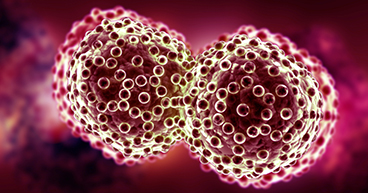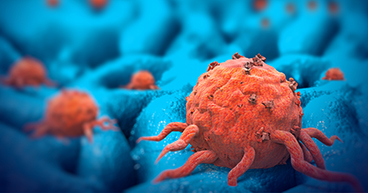
We have cells from the hair on our heads to the nails on our toes: skin cells, blood cells, nerve cells—about 200 types in all. Cells form our muscles and bones. They help us turn food and oxygen into energy. They heal our wounds and keep us well. Like good soldiers, cells perform their vitals duties with strict protocols and in amazing order. They communicate and cooperate with the cells around them. Then, when they have given their all, they kill themselves to make room for new, healthy cells.
But some cells go rogue. Usually, these rogue cells recognize they have turned evil and shut themselves down before they cause damage. Others are quickly killed by the immune system. But some rogue cells find ways to survive. When that happens, a cancer may be born. "Normal cells grow, divide and use their cellular machinery according to predefined rules in the cells’ DNA," says Glen Weiss, Director of Clinical Research and Medical Oncologist at our hospital near Phoenix. "Cancer cells do not follow these rules." As they begin to divide and develop into cancer, these rogue cells break many of the rules of good cell behavior.
Breaking the rules
For instance:
- Normal cells know when to stop growing; cancer cells grow with abandon with no regard to the space around them.
- Normal cells kill themselves when their duties are done, a process called apoptosis; cancer cells ignore signals to die and, without treatment, may divide indefinitely and become virtually immortal.
- Normal cells communicate to help their host survive and thrive; cancer cells communicate only to deceive the body's defenses.
Of cancer's many bad behaviors, few confound doctors and challenge patients more than metastasis, cancer's ability to travel and establish colonies in other parts of the body. "It is the metastatic tumor that causes the demise of most patients with advanced cancers, not the primary tumor," says Dr. Weiss. Metastasis is responsible for 90 percent of all cancer deaths. That’s why it’s so important to figure out how and why it happens. The growing understanding of the metastatic process is leading to new diagnostic tools to spot it and new treatments to fight it.
Doctors may remove tumors with surgery, shrink them with radiation and chemotherapy or attack them by activating the body's immune system. But some cancers are wanderlust and migrate from their original tumors and hide from detection and traditional treatments. Then they may pop up months or years later, often more resistant to treatment than the original cancer.
Durable survivors
Metastasis also demonstrates how durable and resourceful cancer cells can be. Because cancer cells are not normal, they really shouldn't be able to survive the harsh environment inside the human body. But some cancer cells develop strength and cunning as they grow, becoming hardened travelers. "Think of all the things a cancer cell needs to do to survive," says Walter Quan, MD, Chief of Medical Oncology and Director of Immunotherapy at our hospital near Phoenix. "It breaks off from the original tumor and travels through the bloodstream, which is like turbulent water, and it has to survive without drowning. Then it settles into an environment that has no nutrients whatsoever. So it has to build a place to survive and feed itself and reproduce. And, by the way, when immune cells come by to make sure nothing is wrong, it has to hide from them."
Because researchers have been able to chronicle the journeys of metastatic cancer cells, they have developed a better understanding of their rogue behavior.
Scientists’ eventual goal is to corral and, ultimately, kill these wandering invaders wherever they may hide.
Until then, the lessons revealed in today’s clinical trials are helping oncologists recognize the limitations in some treatments. "There is still much to learn about how to prevent and treat metastatic lesions," says Dr. Weiss. “For example, in lung cancer, there are differences between the features of metastatic lesions involving liver, brain or bone—which is why there is still room for a lot of improvement in our treatments."



